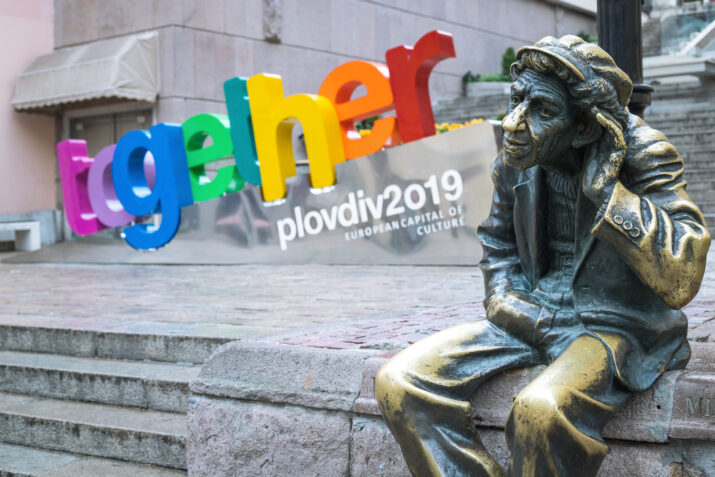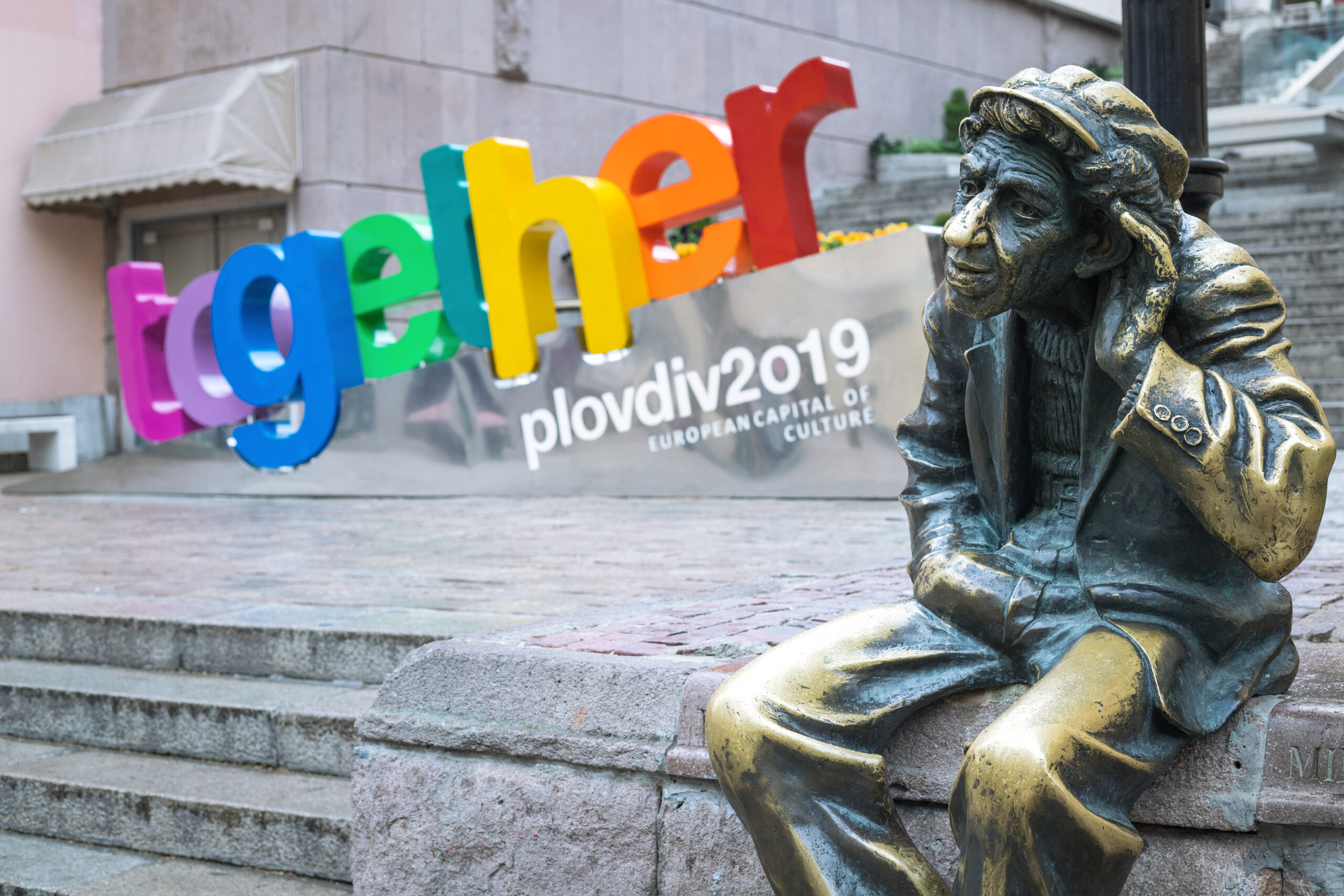

An introduction to a Roundtable on The European Capitals of Culture.
The European Capitals of Culture (ECoC) program was established in 1983. The Greek minister of culture at the time, the late Melina Mercouri, brought the idea for the project to her European counterparts in Brussels. The French minister of culture at the time, Jack Lang, ardently supported the idea. The EU Council of Ministers of Culture’s decision to endorse the project was unanimous, and Athens was chosen as the first ECoC. Melina Mercouri stated,
How is it possible for a community, deprived of its cultural dimension, to develop?…Culture is the soul of a society. The determinant factor of the European identity resides exactly in the respect of this very diversity aiming at the creation of a dialogue among the cultures of Europe. It is time our voice to be heard so strongly, as the voice of the technocrats. Culture, the arts and creativity are not less significant than technology, commerce, and economy.[1]
Today, the European Capitals of Culture (ECoC) program has entered its fifth cycle. Early on, one city per each of the twelve EU countries was nominated to participate in the program. At that time, the city chosen was usually the country’s capital city. The program’s implementation usually relied on an artistic project that was elaborated by the city’s officials according to loose guidelines and with the approval of the EU Council of the Ministers of Culture. In the current cycle of the program, which is set to last until 2033, two cities are chosen in each member state to participate in the program after national intercity competitions have taken place. In addition, every three years, a city located in a country that has applied for EU membership is included in the program. The ECoC initiative has established itself as a distinctive cultural brand in Europe and the world. It has been one of the EU’s most successful cultural policies. Indeed, every year, a growing number of cities compete for nomination. To this day, approximately 300 cities have been candidates, and more than sixty cities have been selected as ECoCs. In 2033, a new cycle is expected to begin.
The general objectives of the ECoC program are to safeguard and promote the diversity of cultures in Europe, highlight common European cultural features, and enhance citizens’ sense of belonging to a common cultural area. The project is also meant to increase the use of culture in the long-term development of cities in accordance to these cities’ respective strategies and priorities. The ECoC program, also called an “Action” in the language of the EU, passed through successive phases and different legislative frameworks.[2] The two most recent laws pertaining to the program are Decision 1622/2006/EC (in force since 2013) and Decision 445/2014/EU, which came into force in 2020. The latter has been aligned with the Treaty on the Functioning of the European Union (TFEU), as “the Union shall contribute to the flowering of the cultures of the Member States, while respecting their national and regional diversity and at the same time bringing the common cultural heritage to the fore.”[3]
Decision 445/2014/EU, which will be in force until 2033, includes six criteria for the selection of ECoCs. Thus, when applying, a city must demonstrate that its program
-
- Contributes to the city’s long-term development strategy;
- Possesses a European dimension;
- Has cultural and artistic content;
- Is deliverable within the capacity of the city;
- Includes outreach activities;
- Implicates the city’s government for its management.
The latest regulation introduced a two-stage selection process overseen by a panel of independent experts (10 members) appointed by the European Parliament, the European Commission, the European Council, the Committee of the Regions, and the national ministries of culture. This panel of experts supports and advises the pre-selected cities so they may develop their program according to EU official guidelines. Other themes such as the legacy of the project in a city’s long-term development strategy are also considered, as well as the potential economic and social impact of holding the title.
After almost thirty-seven years since the first ECoC project (Athens1985), it has become necessary to open a conversation about its sustainability after the end of the current cycle in 2033. Since the Action’s regulations were last updated in 2014, much has happened in the EU: climate change has become more acute; the digital and electronic sectors have vastly developed; and waves of refugees have come from Asia Minor, Africa, and beyond. The world has endured the COVID-19 pandemic, and Putin has invaded Ukraine. Moreover, the role of the city has been debated in the face of social disintegration and urban spatial inequalities, and the question of local identities have captured the attention of experts and the public alike. All these challenges have placed a heavy burden on Europe. Therefore, solidarity, cohesion, and inclusion have played a key role in new policies at the EU level. In this context, culture has become increasingly important. Culture with a capital “C” (top-down) and “culture” with a lowercase “c” (bottom-up) must converge and co-create safe and prosperous conditions for the EU that embraces the rich cultural heritage of its past, evaluates its present, and prepares for its future. The next round of ECoC will start in 2034 and will probably entail new rules for candidate cities. The implementation of new criteria will involve the EU Parliament and Committee, the Committee of the Regions, national ministers of culture, and various other stakeholders. The preparation of this next round will start in 2027-2028, or six years before the actual start of the new cycle.
Therefore, today the ECoC Action is at a turning point. In this context, I spoke with some leading personalities involved in the program: Steve Green and Ulrich Fuchs have been members or chairs of several Evaluation and Monitoring Panels of Experts for various ECoCs, and Michail Marmarinos has served as the artistic director for Eleusis2023 (Greece). In the interviews included in this roundtable, Green and Fuchs address the process behind the ECoC Action and discuss whether the initial goals, as set in1985, are still relevant and functional today. They assess whether the successive amendments made to the program have rendered it easier for cities to fulfill these goals and the extent to which the ECoCs have led to the integration of cities’ broader and long-term development goals. They also make recommendations for the next ECoC round, which will begin in 2034.
Moving from general considerations, Marmarinos and I offer a focus on Elefsina—also called Eleusis or Elevsis—the Greek ECoC for 2023 (postponed from 2021 due to the pandemic). Elefsina is a small city of 27,000 inhabitants west of Athens, in the Thriassian Plane. The city has 4,000 years of history and is one of the five “sacred cities” of ancient Greece. It is also where the Elefsinian Mysteries—an ancient ritual by which humans communicated with the underworld—are set and the birthplace of Aeschylus, the ancient poet of dramaturgy. From the late nineteenth century to the last decades of the twentieth century, the city developed into one of the most dynamic industrial areas in Greece; however, it eventually suffered from de-industrialization and environmental degradation. Therefore, the ECoC Action constitutes a step forward for the city to enter the post-industrial era. Marmarinos speaks about Elefsina’s artistic program and its relevance to the ECoC’s initial goals, as well as the potential legacy of the ECoC program in the city’s development beyond the ECoC year. In my article, I delve into the outcome of the Mystery 57: Reviewing the Elefsinian Landscapes workshop that took place in Elefsina in June 2022. I introduce concepts such as “urban spatial identity” and “Eurocal spatial identity” to explain how ECoC candidate cities formulate their bids in the program.
The success of the ECoC project can be seen in how it has spread worldwide. Similar projects have been implemented at the scale of continents or groups of states or within individual states. Some examples of such programs include the
-
- African Capital of Culture;
- Ibero-American CoC;
- ASEAN CoC; and the
- Cultural Cities of East Asia.
Other programs have been implemented at the regional scale, such as
-
- the Commonwealth of Independent States CoC;
- the Portuguese Speaking Countries CoC;
- the Arab CoC;
- the Islamic CoC;
- the Turkic World CoC;
- the Eixo Atlántico CoC; and
- the Russian CoC (scheduled to start in 2024).
Moreover, the UK, Italy, France, Lithuania, Serbia, Belarus, Azerbaijan, China, and Ukraine have all created their own national Capital of Culture programs. More recently, 30 ministers of culture from cities around the Mediterranean have agreed to proceed with a Euro-Mediterranean Capital of Culture project (Naples Summit, June 2022). Undoubtedly, Melina Mercouri’s and Jack Lang’s vision has proven fruitful to inspire and attract people to culture and to foster the development of human and social capital around the whole world. Culture shapes the foundations of human existence and can lead to peace and wellbeing. Therefore, it is hoped that, as the EU faces critical issues, the ECoC Action may serve to bring Member States closer together.
-
Introduction by Anastasia Paparis
-
“Building Europeanness through the European Capitals of Culture: An Interview with Steve Green” by Anastasia Paparis
-
“Eleusis2023 and the Mysteries of Transition: An Interview with Michail Marmarinos” by Anastasia Paparis
-
“Urbanism and the European Capitals of Culture: Eleusis2023” by Anastasia Paparis
-
“Reflections on the Next Round of European Capitals of Culture: An Interview with Ulrich Fuchs” by Anastasia Paparis
The author expresses her sincere thanks to Hélène Ducros for her generous cooperation.
Anastasia Paparis, Dipl., MSc, M. Phil., PhD, is an architect, town planner, and urban designer, with a rich academic teaching, research, and design portfolio. Her PhD was entitled “The identity of the European City through the Institution of the Cultural Capitals of Europe.” Her research interests cover a broad range of themes, with a focus on cultural infrastructures and urban spatial identity in Europe. She is a member of the Pool of Experts for the ECoC, EU.
References
[1] Excerpt from her speech at the Ministers of Culture Summit, Athens, 28 November 1983.
[2] Decisions 1419/1999/EK, 1622/2006/EC and 445/2014/EU. Also, Commission Staff Working Document {COM (2012)407 final}.
[3] Treaty on the Functioning of the European Union (TFEU). https://eur-lex.europa.eu/EN/legal-content/summary/treaty-on-the-functioning-of-the-european-union.html. Also, Decision No 445/2014/EU of the European Parliament and of the Council, 14 April 2014, Establishing a Union action for the European Capitals of Culture for the years 2020 to 2033 and repealing Decision No 1622/2006/EC.
https://eur-lex.europa.eu/legal content/EN/TXT/PDF/?uri=CELEX:32014D0445&from=EN (accessed 02/20/2023).
Published on July 12, 2023.




